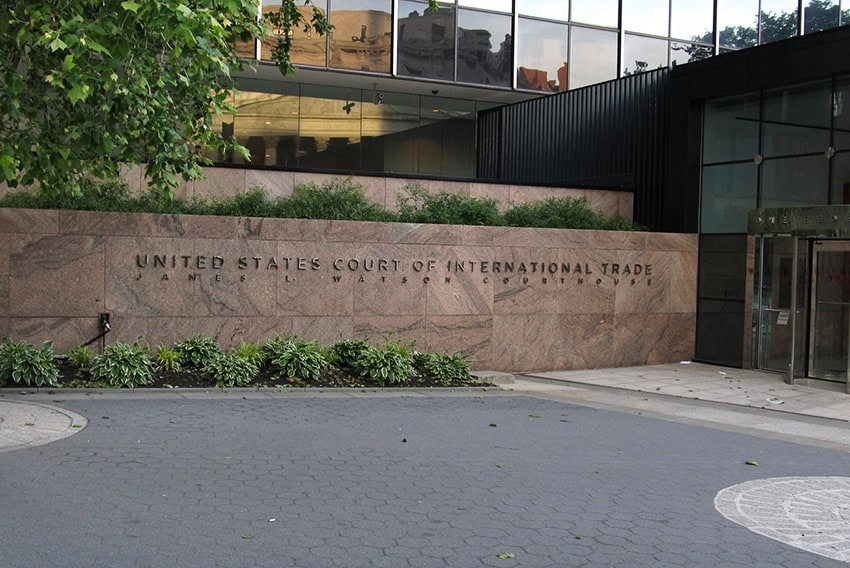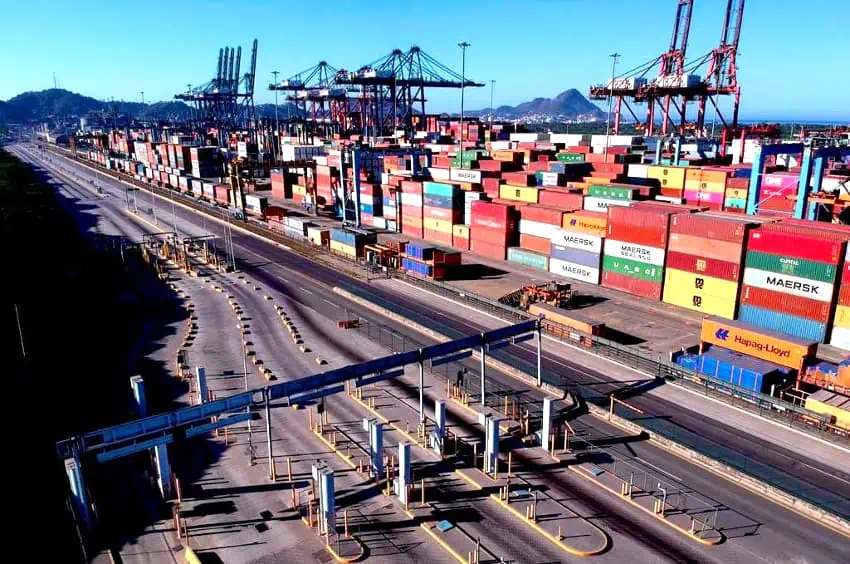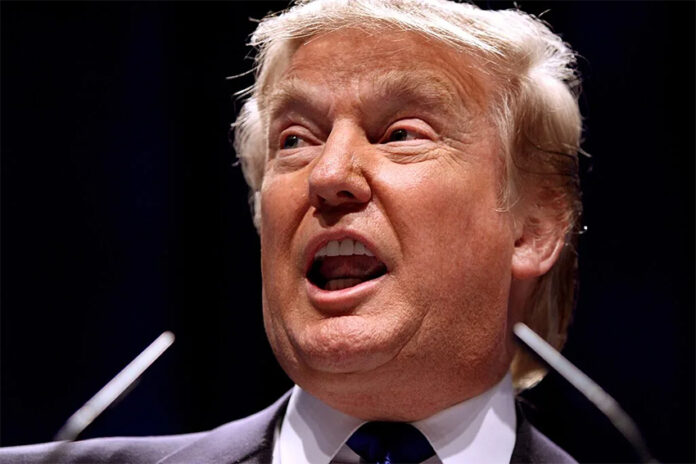Mexico on Wednesday appeared poised to get some relief from U.S. tariffs thanks to a decision by a U.S. federal court that blocked President Donald Trump from using an emergency-powers law to impose duties on imports.
However, there is no certainty that the decision will force the Trump administration to withdraw some of its tariffs, as an appeals court agreed on Thursday to allow many of the U.S. president’s sweeping duties to remain in place.

The appeal court’s decision came after the United States Court of International Trade ruled on Wednesday that Trump exceeded his authority in using the International Emergency Economic Powers Act (IEEPA) to impose tariffs on imports from most countries around the world.
The U.S. president used the IEEPA, a federal law enacted in 1977, to impose his so-called “reciprocal tariffs” on imports from many countries (but not Mexico), and to implement duties on goods from Mexico, Canada and China to pressure those nations to do more to combat fentanyl trafficking.
The United States Court of International Trade said in a 49-page written ruling that the fentanyl “Trafficking Tariffs fail because they do not deal with the threats set forth” in the orders to implement them.
Trump imposed 25% tariffs on all imports from Mexico and most imports from Canada on March 4 due to what the White House said was a failure by the two countries to take adequate action against “the influx of lethal drugs” to the U.S.
Two days later, he suspended the tariffs on Mexican and Canadian goods covered by the USMCA.
Products that comply with the three-way trade pact can still enter the U.S. tariff-free, but non-USMCA-compliant goods continue to face the 25% duty. Economy Minister Marcelo Ebrard said in March that between 85% and 90% of Mexican goods exported to the United States wouldn’t be subject to tariffs as a result of Trump’s decision to suspend tariffs on imports covered by the USMCA.
The United States Court of International Trade gave the U.S. government 10 days to complete the bureaucratic process to halt all IEEPA tariffs that are in effect, including the 25% duty on non-USMCA-compliant Mexican products.
The White House promptly filed an appeal with the Federal Circuit Court of Appeals, and that court on Thursday granted the request by the U.S. government for a stay on the trade court’s ruling.
If the U.S. government fails to win a definitive revocation of the trade court’s ruling, Trump could use other laws to impose sweeping tariffs on imports from its trading partners.
Trump’s protectionist policies have created significant global uncertainty in recent months, not least because the U.S. president has made numerous changes to the tariffs he has imposed. That uncertainty will persist until a definitive decision on the legality of the IEEPA tariffs is made.

At her Friday morning press conference, President Claudia Sheinbaum was cautious in her remarks about the trade court’s decision, saying that the Economy Ministry would conduct an analysis of the “reach” of the ruling as it will affect tariffs on Mexican goods. She noted that the U.S. government was challenging the ruling.
“We’re going to wait,” Sheinbaum said.
The New York-based trade court’s ruling came in response to lawsuits filed by various businesses and 12 U.S. states.
Trade court ruling doesn’t affect US steel, aluminum and auto tariffs
While Mexico will get relief from the 25% IEEPA tariffs currently in effect for non-USMCA-compliant Mexican goods if the U.S. government’s appeal is ultimately unsuccessful and it is forced to halt those duties, current U.S. tariffs on foreign steel, aluminum, vehicles and auto parts are not affected by the trade court ruling on Wednesday.
Those tariffs were imposed for national security reasons in accordance with Section 232 of the United States Trade Expansion Act.
Mexican steel, aluminum and hundreds of products made with those metals currently face 25% tariffs when exported to the United States. United States content in vehicles assembled in Mexico is exempt from the 25% tariff the U.S. imposed in early April, lowering the tariff on Mexican cars to 15% on average, according to Ebrard.

Mexican auto parts that comply with the USMCA are exempt from the 25% U.S. tariff on parts that took effect earlier this month.
Mexico is currently trying to negotiate better trading terms with the United States — i.e. the removal or lowering of the tariffs currently in place.
The USMCA, which is supposed to guarantee free trade of most goods between Mexico, the United States and Canada, is scheduled for review in 2026, but Ebrard believes formal talks will commence in late 2025.
Mexico News Daily
